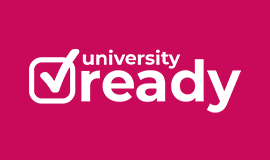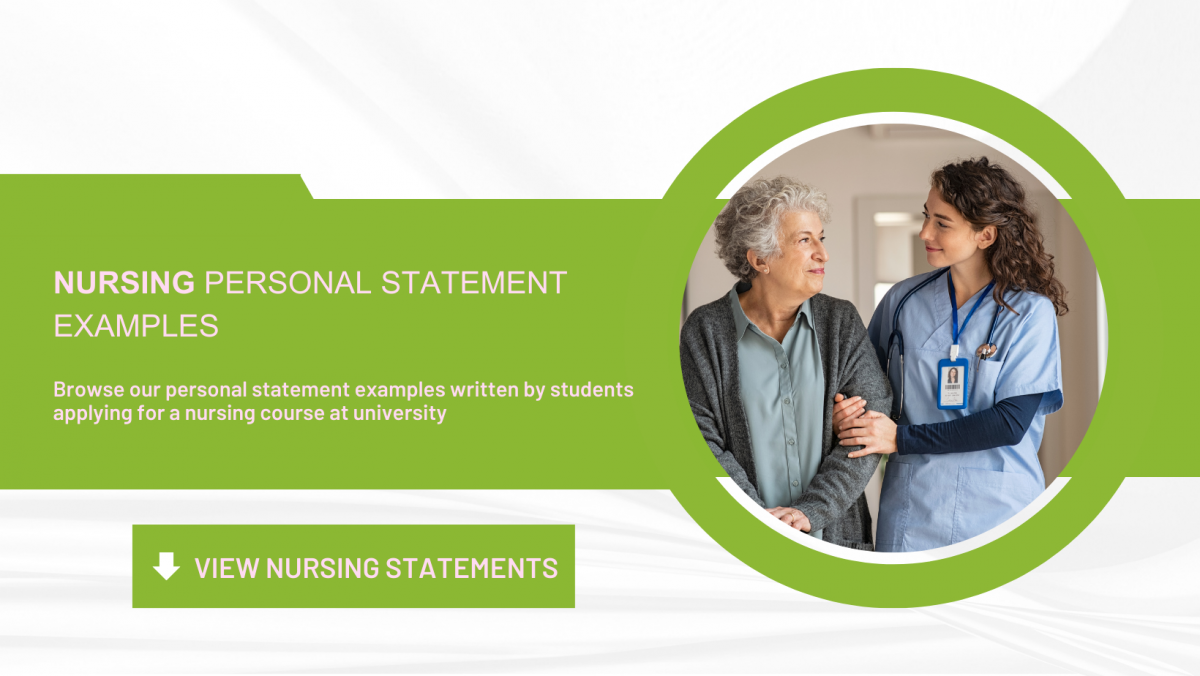

How to Write the Nursing School Personal Statement: Steps, Tips, And Samples

Introduction
A nursing career allows individuals to help patients in a nurturing environment, and to find their existential fulfillment. As a result, many learners decide to pursue a career in the field, and you are one of these individuals!
Eager to receive an acceptance letter? You know that you’ll need to submit the application material in a timely fashion, and part of that process involves crafting a stellar personal statement for nursing school.
According to a report by CNN , many applicants are rejected from nursing schools, unfortunately. Even when you feel that you have solid writing skills, you must hone these talents and gear them specifically toward that nursing school personal statement.
After all, you are looking to boost your chances of acceptance. Following a process and learning key pointers about this essay will help you to succeed.
Preparatory Work
Don’t simply sit down at the computer and start clicking away on the keyboard. Crafting a compelling personal statement for your target nursing school involves a significant amount of preparatory work. As seasoned writers know, the art of writing is a process.
Step 1: Research the Schools
Each school is going to have its unique requirements, and you want to know what those requirements are. Researching different programs serves multiple purposes. For example, you can start to rank the programs in order of your preference. Secondly, you get to determine what schools are reach schools and which institutions are your safety schools.
This process will also help you to get a sense of how competitive your personal statement should be. The best According to a ranking of 2023 Best Colleges for Nursing in America , the University of Pennsylvania, Emory University, and Duke University are listed as the top three.
If you’re applying to one of those institutions, you should go through your personal statement with a fine-tooth comb!
Step 2: Write Freely
At some point in your educational career, you’ve likely been asked to write freely about a topic. As you start seeing the prompts from different nursing programs, feel free to type your ideas, preferably, in a word-processing program on your computer.
You could challenge yourself to address one or more of the following prompts:
- What was your reason for choosing nursing as a career? Do you have any additional information that you would like the admissions committee to know about you that has not been previously considered in the application? (2000 characters)
- Discuss your interest and understanding of the clinical nurse leader role. What experiences have contributed to your interest? (2000 characters)
- The goal of the Doctor of Nursing Program is to prepare nurse leaders at the highest level of nursing practice to improve patient outcomes and translate research into practice. Describe experiences that exhibit your leadership skills. (2000 characters)
- Discuss the clinical specialty area you are interested in pursuing. What experiences have contributed to your interest? (2000 characters)
- Discuss a population of interest in your work setting. What experiences have you had with this population? What health care needs do you see in this target group? (2000 characters)
Check out more nursing school personal statement questions .
While the schools to which you are applying might not ask the exact questions, you have at least started to get your creativity flowing in terms of what you might write.
Step 3: Talk to an Admissions Counselor
As you’re narrowing down your choice of nursing schools, consider scheduling an appointment with an admissions counselor. Aim to schedule an on-campus appointment if possible as this gives you a real feel of the school environment. Where it is impossible to get one, as with the current Covid-19 pandemic, consider a virtual or telephone appointment.
An admissions counselor will provide you with guidance that is specific to their nursing school’s acceptable personal statement. In other words, different schools have varying expectations. While the admissions counselor may not answer all your questions, you still have a chance to receive valuable insight.
Step 4: Review Genre Conventions
Whether you applying at the undergraduate level or graduate level, you are already familiar with certain genre conventions. What you must recognize is that a personal statement can be quite different from other academic pieces that you have done. Penn State offers some great pointers on elements that characterize a personal statement .
For example, you might think that a personal statement needs to follow a five-paragraph format with a thesis statement as the last sentence of the introduction. While some personal statements take on this format, others employ a more reflective structure.
Step 5: Thoroughly Check Requirements
You want to make sure you know exactly how many nursing school personal statements you have to write for your application and what the requirements are for each one. Take an example from medical school. When students apply to medical school, they typically have to write one larger essay followed by several shorter ones.
Knowing the expectations of the specific programs to which you are applying can help you budget your time appropriately. Pay close attention to deadlines as well. Submitting an application after the posted deadline is a sure way to seriously lower your odds of getting admitted.
The Writing Process
Once you have completed the research phase and gathered preliminary information, you may think that you’re ready to craft the final version of your essay. However, writing is an intricate process. Allowing yourself adequate time to go through this process will heighten your chances of drafting a captivating essay.
Step 1: Print or Write down the Prompt
You must adhere to the prompt. Period. Keep in mind how crucial it is to follow protocols in the field of nursing. If you cannot follow the guidelines for a nursing school personal statement, the admissions committee may doubt your abilities in the field.
Printing out the prompt or jotting it down is quite useful because you can visually assess if you have checked off all of the requirements. Pay attention to how the prompt is worded. Further, note any length requirements; you may have to write at least a certain number of words or ensure that your essay does not exceed a specified number of characters.
When essays have character limits, make sure to find out if the character limit includes or excludes spaces. As you go through the writing process, you can check off each requirement on the prompt.
Step 2: Use a Brainstorming Strategy
I am confident you have great brainstorming techniques up your sleeves. If not, The Writing Center at the University of North Carolina at Chapel Hill offers some very handy brainstorming techniques that you could use.
Try to resist the urge to skip right ahead to the full first draft. Brainstorming allows you to get your ideas out. For example, you might look at the prompt and make a list of whatever ideas comes to your mind. You don’t need to worry about organizing them or fully developing the content yet. You could also craft a formal outline as you brainstorm ideas. See which strategy works best for you.
Some writers like to use the actual writing out of sentences as a brainstorming technique. With this approach, you could just write or type whatever ideas come to mind. Setting a timer for this activity is useful. Then, you can go back in to shape your ideas.
Step 3: Craft the First Draft
Writing can be intimidating. You might feel as though you are totally committing to whatever words you put on paper. But the drafting process helps to overcome this anxiety. Sitting down to write the first draft means that you know you will make changes. As a result, you do not feel as pressured.
For some, writing is an enjoyable process; for others, just the thought alone is enough stress and a nuisance. If you fall into the latter group, budget your time. You could allocate an hour each day for a week to put together the first draft. This strategy works even when you love writing.
Step 4: Start with What You Know
Many writers become so concerned with the first sentence of their introduction that they end up losing valuable ideas for the rest of the essay. For example, imagine that you have four main ideas that you would like to explore in your nursing school personal statement. Your natural inclination might be to write about the experience that happened earliest chronologically before you tackle the others.
Consider the fact that you might feel more comfortable writing about the second or third chronological experience instead. Start with those paragraphs. You can then build the essay around them. Getting started is often the most difficult part of a writing project, so starting with what you know can help to inspire the rest of the piece.
Step 5: Prioritize Higher-Order Issues
In writing, topics such as organization, addressing the prompt, and developing ideas are often considered more important than issues like grammar and spelling. Of course, you want to present polished grammar and proper sentence structure in your nursing personal statement, but these issues are less important in your first draft.
When you are creating your first draft, pay attention to the content. Work to get the paragraphs into reasonable order, and aim to develop your ideas as much as you can. You will worry about the grammar, sentence structure, and proofreading issues when you go to revise.
Step 6: Put the Essay Aside
As mentioned earlier, planning your time is vital when it comes to the writing process. Therefore, as unorthodox as it may sound, you need to disconnect yourself from the work for quite some time before reviewing. Putting your work away for at least a day is a smart move. By doing so, you have the proper amount of time to really assess the changes that you want to make.
It’s tempting to immediately go into your paper to revise after writing the first draft, and this urge is particularly strong when the deadline is soon. You might miss important information though. Waiting allows you to recall more important details that you want to be included in the essay. Taking a break from your personal statement allows you that necessary mental space to potentially come up with fresh ideas.
Removing yourself from the project for some time also helps with editing. When you are first writing, you may include some unnecessary details about events related to nursing or your reasons for becoming a nurse. These details may be important to you, but they might not be important for your essay. Putting your work aside for some time will help you gain that perspective.
Besides, picking up on proofreading and editing errors is difficult when you have just written the paper. Your mind is likely to read the work as though it is correct because you just wrote it and you know what the text is supposed to say.
When you come back to read the text later, you are likely to catch these mistakes. For some, printing out the essay and editing it by hand seems to work great. Make sure to read the text out loud to catch errors. In other words, you may hear issues more readily than you see them.
Step 7: Visit a Writing Center
If available to you, a writing center is extremely valuable. Ben Rafoth in Writing Spaces: Readings on Writing explains why writing centers are so valuable. The main idea here is that you get the chance to review the work with a tutor. Having the insight of a professional or a peer on your work is crucial.
Writing centers function in a variety of ways. Some tutors may require students to read their papers aloud while others might make markings on the student’s paper. If you are already a student at a college, you likely have access to a writing center right on campus.
If you do not, ask a few people to read over and review your essay ( me shamelessly plugging in our services page here 🤦). Sharing your work with others might feel frightening, but keep in mind that an outside reader can offer you important insights.
Step 8: Revise and Revise Some More
One round of revisions is typically not enough for an important piece of writing. You want to make sure that your personal statement for your target nursing school is as polished as it gets. Now you will have to decide how many times is enough revision.
But as a rule of thumb, aim for at least 3 rounds of revisions. As you go through each essay each round, you will likely notice grammar and sentence-level issues that need fixing. At some point, however, you will feel confident with your paper. Then, you are ready to submit the document.
Related: 8 Best TEAS Prep Courses Today, According to Nursing Students
Topics and Approaches to Consider
In addition to allowing your writing to develop over time, you also need to make sure you are selecting appropriate content. But remember, you must always strive to address the specific prompt from your target nursing program. Consider the following clever tips to make your writing shine:
Tip 1: Start with an Anecdote
You want to grab the attention of your readers at the beginning of your nursing school personal statement. Beginning with an authentic anecdote is one way to do so. For example, you might bring in a specific experience that encouraged you to want to become a nurse or a situation that had a profound influence on your life.
Remember the importance of authenticity when taking this approach. You might feel like you need to manipulate the experience to make it sound more dramatic than it was. However, bear in mind that a commitment to honesty is imperative to your nursing goals.
As a word of caution, the admissions team has quite possibly read numerous nursing personal statements in the past, which means they can sniff out your inauthenticity from a mile away! You do not want that, now do you?
Tip 2: Talk about Yourself
Many students fall into the trap of talking about other people more than they discuss themselves. You might have a profound story about how a medical situation with one of your grandparents inspired you to become a nurse, or you might want to share details about an internship that you had with a particular nurse.
What you do not want to do is end up writing more about your grandparent or the nurse with whom you worked than you do about yourself.
While these individuals may very well have played a crucial role in your decision to pursue a nursing career, they are not the ones applying to a nursing school. You are essentially trying to sell yourself to the admissions committee. Talk about how these experiences shaped you and what you learned from the situations. Keep the focus on yourself.
Tip 3: Discuss the Target School
Chances are that you are applying to multiple nursing programs. If you are thinking of applying to only one program, casting your net wider is definitely wiser. After all, you don’t know for certain that you will gain admittance into your program of choice. When you apply to different schools, you should tailor the personal statement to each institution.
It’s quite possible that each school will ask you a similar question or that the prompts will resemble each other. While you might be compelled to do a one-size-fits-all personal statement for each of the nursing schools, that would be a sure recipe to get a rejection letter. The writing will sound as though it has been repurposed.
The admissions committee wants to see why you are a good fit for that specific school, not simply nursing schools in general. Now, of course, you can potentially use the same base. For example, you might want to share the same volunteer experiences or internship experiences with each school. However, you should have a section that is thoughtfully tailored to the individual school.
Incorporate specific details about the school that show why you want to go there. You could highlight particular classes that interest you or discuss a few of your role models who are that school’s alumni- basically, anything that, without a doubt, demonstrates that your essay is intended for the specific school.
Take a look at the following excerpt from an actual personal statement. While it is not for a nursing application, it should elaborate on the point.
“RIT is an excellent choice for me because it has successfully carved out a reputation for itself as a leading technology university. The availability of top-notch facilities, like the Simone Center for Student Innovation and RIT Venture creations Incubator, continue to set the university apart from its peers. As a result, the university sports a vibrant entrepreneurial culture that is leveraged on technology to inspire learners to identify problems that require innovative solutions. Importantly, I believe the MS TIME program will enable me to experience entrepreneurship in a reimagined way, like never before.”
Tip 4: Know What to Avoid
You already know that you should avoid manipulating personal stories and writing generic essays. You should also avoid begging for admission into the school. Further, avoid integrating clichés into your writing. Instead, look for personal ways to convey your ideas instead of simply regurgitating.
Avoid plagiarism as it can affect you professionally. Running your work through a plagiarism checker will weed out accidental plagiarism. When you read samples, you absolutely must not copy them.
Nursing School Personal Statement Examples
How about we examine (and comment on) some excerpts from samples of personal statements- to give you a general idea and hopefully get you started. Ready? Let’s go!
“Nursing is a very versatile field and the subjects I am currently studying have many links with adult nursing. Studying psychology has made me aware that the mental health of a patient is just as important as their physical well-being. I have learnt that the brain and the body are never in harmony, which can explain why we are such a diverse species in the way we act, or the beliefs we hold…”
– Read the rest here
Commentary : The student does a splendid job of connecting his educational experience to the nursing field. He might want to watch for absolutes, such as the word “never.” But as long as you can back up your assertion, you are free to say what’s on your mind. The student should, however, break down this wall of text into two separate paragraphs, for readability purposes.
“After a series of illnesses and injuries during my early childhood, I was introduced to the role and care of Nurses. It was from here I became fascinated and realised this could be a satisfying future outlet for my empathetic self. I feel that nurses are truly inspirational professionals. They provide an inestimable service to society whilst working in a highly demanding and very challenging career, assisting individuals and their families through difficult times when they are at their most vulnerable. I feel I am ready to embark on this career and start to fulfill this ambition of mine to become a children’s nurse.
I believe nursing is a career in which I will excel because of my compassion for those who are at their most vulnerable. My ability to empathise with individuals would provide a positive nurse and patient relationship, putting the child and family at ease, allowing the family to approach me for support and guidance and therefore meet specific needs of the child and their family. Self-confidence is something I consider to be highly important within a nursing career. Having self-belief when working under pressure and in stressful situations is crucial when ensuring high quality care is delivered. Nursing can be a stressful career where traumatic situations are common…”
Commentary : This is an excellent example of how to start a personal statement for nursing school, and transition effortlessly from the introductory paragraph to the next. The student here clearly connects her experiences as a child to her desire to be a children’s nurse. And just from reading this sample, you feel she is well qualified for admission!
“I want to be a nurse to do something worthwhile with my career, I don’t want to waste my days working behind a computer, I want to be a nurse to utilise all of the best parts of my character…”
– Read the rest here
Commentary : What’s useful here is that the student speaks with confidence. He seems to have a pretty clear direction from the start. However, the writing does contain comma splices, which is a grammar mistake. While the word “something” is vague, it wouldn’t be if the student elaborated on the same paragraph or the next one.
Also, the student here could better consider the audience. In this case, the audience might consist of admission committee members who work on a computer all day, and they might feel a little offended from reading the first line. Even if their personal feelings aren’t supposed to come into play when assessing the essay, the readers are likely not going into the rest of the essay brimming with enthusiasm.
In addition, the student should consider improving the opening line by focusing more on his specific goals and by eliminating information that could potentially alienate the audience.
“My motivation towards nursing did not emanate from anywhere. I relate it to the experiences that I have had since I was young. As I reflect on my life back, I remember that I grew in a family where my father and mother were nurses in the nearby hospital. I witnessed the care and love they extended to the infirm, some of who came to the hospital in dire conditions. As we lived in the staff quarters, I got a chance to sneak to my father’s office and saw how he handled the patients of different ages. I was encouraged to see him listen and take the history of every patient, something that enabled him to make an accurate treatment decision. since then, I wanted to extend the good works that I witnessed with my immediate parents…”
Commentary : This student does not have very advanced writing skills, which is why you can see her commit some grammar mistakes. For example, she ought to write “sneak into” instead of “sneak to”. However, she does a great job demonstrating how her past has led her to want to pursue a career in nursing. Do not be afraid to tell such a story on your nursing school personal statement. Just don’t dwell too much on it. And ensure the story is legit.
Writing a personal statement might seem like an overwhelming endeavor. After all, you do have to take several steps before you are ready to submit a polished essay and hopefully get accepted into your program of choice.
Keep in mind that your efforts will be worth it. Obviously, other aspects of your application come into play- Factors such as your GPA, recommendation letter, etc.
However, it is on your nursing school personal statement that you have the chance to really craft your story how you deem fit and showcase yourself in the best possible light. By putting the necessary time and effort into it, you could find yourself studying to become a nurse when the next semester begins.
Related Nursing Readings:
13 Best Books for Nursing Students to Read- Reviewed
Is a Nursing Degree Worth it? Explore the Benefits
13 Best Online Nursing Programs for Non-Nurses
The 5 Absolute Best NCLEX Prep Books
Best NCLEX Prep Courses, According to Nurses
Leave a Comment Cancel reply
Save my name, email, and website in this browser for the next time I comment.
This site uses Akismet to reduce spam. Learn how your comment data is processed .
Advertise With Us
Advertising Disclosure
Privacy Policy
Cookie Policy
As an Amazon Associate (and a participant of other affiliate programs), this site earns from qualifying purchases.
© 2024 TheCollegeApplication.com, a Delicto Holdings Company | All Rights Reserved

- Application Requirements
- Tuition & Financial Aid
- Transfer Credits
- Financial Aid FAQ
- What Can You Do With a Computer Science Degree?
- What Can You Do With a Marketing Degree?
- What Is RN to BSN
- Curriculum & Practical Experiences
- Double Shark Scholarship
- Leadership & Faculty
- Career Services
- How To Become a Behavior Analyst
- Library and Information Science (MS)
- Curriculum & In-Person Experiences
- What is an FNP?
- Course Sequence Page
- Course Description
- Nutrition and Health Promotion (MS)
- Accelerated MPH Program
- What Is Health Equity?
- Behavior Analysis (PhD)
- Apply Now External link: open_in_new
Home / Blog
Tips for Writing a Great Nursing Personal Statement
When preparing to apply to a graduate nursing program, there are many requirements and submission guidelines to remember. The component that allows you to tell your unique story — your personal statement — is one of the most important.
Writing a compelling personal statement for an MSN program, like the Nursing@Simmons online Family Nurse Practitioner (FNP) or Psychiatric Mental Health Nurse Practitioner programs, takes time and can be challenging for some applicants. Just as a poorly written essay can hinder your chances of acceptance, a great one can set you apart from other applicants. Below are three steps to writing a personal statement that will make a positive impression on any admissions committee.
1. Plan Your Story
Very few people can sit down at a keyboard and craft the perfect personal statement without preparation. It may take several weeks of thinking about how to communicate your story, so give yourself plenty of time to plan, jot down thoughts, and make an outline as ideas come to you. Use the following tips to gather the information you’ll need to create an excellent statement.
- Consider how your work experience as a registered nurse (RN) has influenced you and shaped your goals for the future. How will an advanced education promote your professional growth and help you transition into the role of an FNP or PMHNP?
- Think beyond your resume. What traits, strengths, and accomplishments aren’t captured there? Consider your interests, including how they will contribute to your success in the program. Provide examples of nursing goals, leadership, mentorship, or growth you have accomplished or experienced. Write these down and keep them in mind as you begin your draft.
- Choose appropriate topics for your statement. Avoid soapbox issues, and don’t preach to your reader. This kind of statement can come across as condescending and obscure the point you’re trying to make.
- Research the program. Make sure you understand the school’s values and reputation. Do they align with yours? How so?
2. Create Your Draft
- When it is time to start putting your thoughts on paper, try to avoid overthinking your work. Strive for a natural voice. Pretend you are talking to a friend and write without fear — you can edit and polish your piece to perfection in the next stage.
- Avoid cliches and nursing generalities. Generic descriptors, such as “caring,” “compassionate,” “people person,” and “unique,” have been so often overused that they no longer carry much weight with an admissions committee. They also don’t address your personal experience in the nursing sphere. Try not to start your story with phrases like “for as long as I can remember” or your audience may stop reading.
- Show, don’t tell. Strong storytelling is grounded in personal details that illustrate who you are, both as a nurse and a person. Be specific by describing how many patients you managed, how you earned promotions, or a time when your supervisor praised your professionalism and clinical abilities. Here are examples that illustrate the difference between telling and showing:
“I perform well under pressure.”
“Although my patient arrived for a different ailment, I suspected that her symptoms were consistent with a serious infection. As a result, I was able to advocate for a care plan that prevented further damage.”
- Use specific examples when talking about your experience with direct patient care and evidence-based practice. Provide details about how your clinical experiences have demonstrated patient advocacy, leadership, communication, or confidence.
- Discuss how earning a Master of Science in Nursing aligns with your career plans and why you want to become a FNP or PMHNP . Explain that you understand the commitment required and that you have the skills and dedication to become an FNP or PMHNP. Be sure to let the admissions committee know why you are choosing their program and what makes their program stand apart from the rest. Reflect on the school and program research you did during your planning stage.
3. Edit and Perfect
Even the best writers have to edit and polish their work. Reviewing and revising your personal statement ensures that the piece is clear, organized, and free of errors.
- Once you have written your first draft, take a break and distance yourself from your work. This will allow you to return to the draft with a clear head to review objectively and spot potential issues and errors.
- Read your statement aloud. Does it sound like you? Does it reflect your best qualities and the strengths you’ll bring to a nursing program?
- Always use spell check on your essay, but be careful as it won’t catch every spelling error.
- Use a grammar editing tool, such as Grammarly .
- Ask a friend, family member, or mentor to review your statement. This is a great way to catch errors or awkward phrasing that you may have missed.
Your nursing personal statement should be a window into your life. Use it to share specific experiences that have influenced your decision to advance your nursing education. Adhering to professional standards and presenting yourself in a positive, open, and honest way will help the admissions committee determine your fit and future in an FNP or PMHNP program.
Request Information
- The Open University
- Guest user / Sign out
- Study with The Open University
My OpenLearn Profile
Personalise your OpenLearn profile, save your favourite content and get recognition for your learning
Writing your personal statement for a nursing degree
What kind of information should you include in your personal statement if you are applying for a degree in nursing? The Nursing Team at Aberystwyth University share their tips.
Angharad Jones, Amanda Jones and Bleddyn Lewis from the Nursing Team provide guidance on writing a personal statement including:
- What is a personal statement?
- What should be included in a personal statement for a nursing degree?
- How to structure your personal statement
- Explore your qualities

This resource was provided by Aberystwyth University and is part of the University Ready hub .
Find more resources like this on the hub homepage.

University Ready hub
A collection of resources from all of Wales' universities to help you get started with higher education.
External link
Become an OU student
Ratings & comments, share this free course, copyright information, publication details.
- Originally published: Thursday, 1 September 2022
- Body text - Used with permission: Aberystwyth University
- Image 'Aberystwyth University logo' - Copyright: Aberystwyth University
Rate and Review
Rate this video, review this video.
Log into OpenLearn to leave reviews and join in the conversation.
Video reviews
For further information, take a look at our frequently asked questions which may give you the support you need.
- Translators
- Graphic Designers
- Editing Services
- Academic Editing Services
- Admissions Editing Services
- Admissions Essay Editing Services
- AI Content Editing Services
- APA Style Editing Services
- Application Essay Editing Services
- Book Editing Services
- Business Editing Services
- Capstone Paper Editing Services
- Children's Book Editing Services
- College Application Editing Services
- College Essay Editing Services
- Copy Editing Services
- Developmental Editing Services
- Dissertation Editing Services
- eBook Editing Services
- English Editing Services
- Horror Story Editing Services
- Legal Editing Services
- Line Editing Services
- Manuscript Editing Services
- MLA Style Editing Services
- Novel Editing Services
- Paper Editing Services
- Personal Statement Editing Services
- Research Paper Editing Services
- Résumé Editing Services
- Scientific Editing Services
- Short Story Editing Services
- Statement of Purpose Editing Services
- Substantive Editing Services
- Thesis Editing Services
Proofreading
- Proofreading Services
- Admissions Essay Proofreading Services
- Children's Book Proofreading Services
- Legal Proofreading Services
- Novel Proofreading Services
- Personal Statement Proofreading Services
- Research Proposal Proofreading Services
- Statement of Purpose Proofreading Services
Translation
- Translation Services
Graphic Design
- Graphic Design Services
- Dungeons & Dragons Design Services
- Sticker Design Services
- Writing Services
Please enter the email address you used for your account. Your sign in information will be sent to your email address after it has been verified.
How to Write a Nursing School Personal Statement: What to Include, Examples, and Mistakes to Avoid

So, you have decided to go to nursing school, or advance your nursing career by furthering your education. Now is the time to become familiar with the application process, get your transcripts and letters of recommendation in order and compose the, in some cases dreaded personal statement. Writing a personal statement is a common part of the application process when working to advance your education. However, the term "Personal Statement" is a bit of a misnomer. The universities and colleges asking for this essay are not looking for your life story. Instead, they want you to demonstrate what makes you uniquely qualified as a candidate for their program. In this post you will find the information necessary to make you stand out among hundreds of other applicants, create a personal statement tailored to your personal goals as well as to your potential institutions, and find out what common mistakes are made and how to avoid them.
Although some institutions will give you a specific prompt to discuss when applying to the program, many will request a general personal statement (aka a statement of purpose). There are some commonalities among all of these essays for which you will find appropriate advice here, to different degrees, depending on the program application requirements. Each of these essays should be written for the specific program you are applying to, so be wary of differences not only in essay type or topic but also appropriate formatting and length. Above all, be aware that you are writing to present yourself as a professional capable of caring for the lives of others; following their provided guidelines and avoiding familiar language (such as contractions and common word abbreviations) will allow you to present yourself in the best possible light.
General guidelines
The personal statement.
Although you want to refrain from telling the story of your life, you still want to make it personal. Be sure to illustrate with specific and unique examples why you are cut out for this career and the specific program you are applying to. There are many things that can be included in this category, not all of them will be right for each applicant to discuss or appropriate for the prompts that each individual provides. However, this list should give you an idea of what the evaluators are looking for in a strong candidate:
Educational background
- Did you take advanced biology classes in high school? If so, you may want to highlight this background and how it demonstrates your devotion to health care.
- Have you gone out of your way to learn relevant skills? Perhaps you can discuss your CPR certification training.
- Have you been administering insulin to a diabetic cat for years? This demonstrates a devotion to health care and the ability to learn transferable skills. In fact, my long history of doing this has come up in highly successful interviews in the past, which was the inspiration for this particular example. Although I was medicating a different species than I would be working with, this history demonstrates the ability to regulate insulin levels, properly store medication, fill a syringe safely, and correctly administer a subcutaneous injection.
Volunteer work
- Volunteer work at a hospital is likely a common point of discussion for aspiring nurses. e sure to tell a story about a situation that makes you stand out which solidified your certainty that this is the right field for you.
- Assisted living facilities, caring for special needs children, working at animal shelters, or volunteering at homeless shelters (among other things) may also be sources of inspiration that allow you to highlight why you should be accepted into the program.
- Supervisors in these types of positions may also be great resources for recommendation letters or potential proofreaders for the initial draft of your personal statement.
Work experience
- If you have worked in a related field in a paid position, this should definitely be not only included in your essay, but considered a potential source of a particularly persuasive letter of recommendation.
- Your employer may also be an excellent resource to ask for feedback regarding rough drafts of your personal statement.
Personal motivation
- Do you have a unique story that has compelled you to want to pursue the field of nursing; perhaps you helped care for a family member? These personal motivations are also excellent ways to set yourself apart.
Relevant acquired skills
- Have you acquired a particular skill set relevant to nursing outside of traditional means? This is the time to highlight that achievement. Perhaps you have experience working in a pharmacy or have proven yourself in high-stress situations; these characteristics translate well into the field of nursing.
- Another asset that you might find to be in your favor is fluency in a foreign language, or ASL. This unique skill set might make you a valuable candidate as well as a more highly sought after employee once you graduate.
Unique traits that make you stand out
- Thousands of applicants to nursing programs write that they have "always wanted to go into nursing", sometimes even in their opening line. Find a way to stand out.
- For example, in my personal statement, I wrote about how I actually did not have a traditional story that culminated in my pursuit of higher education. I found my way from grill cook and karate instructor to medical research science. Embrace the fact that you may not be conventional. Letting your personality, background and voice come through in your personal statement will help the admissions committee determine if you are a great fit for their program.

The right fit
As with any educational program, fit is important when looking into pursuing a nursing degree. Demonstrating that you have researched the program, and illustrating in your essay why it is the place for you, will set you apart from other applicants. Additionally, if your long term goal is to be an ER nurse, for example, and you are applying to a program known for a different type of nursing, application reviewers will see this in a negative light.
Essay topics
In some cases, colleges and universities will give you a specific prompt for this essay or ask for a series of short essays addressing particular questions. In these cases, be sure to answer their questions thoroughly and be aware of formatting guidelines and word count limitations. Equally important, be sure to demonstrate ways in which you are a good fit for not only the program, but also the nursing profession. This is a position that is both incredibly personal and physically demanding, but also a situation where you need to be cool under fire and fastidious with your work. Use any opportunity you can to demonstrate that you possess these characteristics in a way that makes you a highly competitive candidate and a potential star in your chosen field.
If you have applied for continued education in the past and have written this kind of essay before, you may have noticed that applying to nursing programs is a bit unique. Particularly, there is a more empathic slant to writing these essays. As personal statements go, writing one for a nursing program is much more 'personal' than preparing one for academic study. To put this all in context, below are some sample essay prompts used by nursing schools in the past. Following this, some advice from successful career nurses will lend an additional perspective from professionals directly working in the field you aspire to join.
Sample prompts
The Vanderbilt University website currently gives the following information regarding the personal statement portion of the application process:
Your Statement of Purpose should reflect your understanding of the role of the advanced practice nurse and your interest in a particular patient population. Before writing your statement of purpose, please carefully review information about the specialty on our web site so that you clearly indicate to the faculty that your career goals are a fit with the specialty. If you are applying to a dual specialty, be sure to address the scope of practice in each specialty area. Students are offered admission to their selected specialty; it is not possible to enter the program undecided about your specialty area. Vanderbilt University
As you can see, this program focuses on your understanding of what it takes to work in the nursing field and puts a particular emphasis on the patient population you want to work with and the reason behind this decision. They also focus on familiarity with the program, as discussed above. These are points that likely generalize to numerous programs and to personal statements for this field in general.
Yale University has the following requirements, according to a website which generates advice specific to nursing personal statements. This site offers the following advice, which echoes the focal points found here, and may offer further information as you pursue your continued education and refine your personal statement. As you can see, Yale differs in its requirements and constrains the length of the personal statement considerably.
Yale University nursing requires you to write a 250-word essay with free choice of your subject. In writing your essay, it is important that this provides you the advantage to stay ahead of your competition. You should be able to include intellectual development, skills, interests, potential contribution to the progress of National University nursing and among many others. It is important to note that Yale University school of nursing utilizes strict admission process so you should be able to comply with top-notch standards. Do not compromise your admission simply by sending out a poorly written personal statement. To improve your chances in Yale University school of nursing, your essay should be able to reflect your dedication, excellence, commitment, and genuine interest to belong to Yale. In your Yale University nursing personal statement, you should also be able to highlight components of your background from academic to personal that will provide the admissions committee an overview of who you are and what you can deliver. To guarantee your admission in National University Nursing, you should be able to provide your readers with information that is unique and interesting that is not shown in any part of your application. Yale University
The essay requested in this case is considerably short, however, it allows you to write about the topic of your choice. This gives you the opportunity to present yourself as a unique candidate. In this personal statement, it is still important to choose a topic that allows you to address all of their listed points of concern to the best of your ability within the constraints of the allotted space. This excerpt also stresses the focus on compliance to high standards necessary to successfully complete the nursing program. Although this is a very short essay, it is emphasized how important it is to ensure that this work is well composed. Writing a rushed essay will be obvious to those reviewing applications and reflects poorly on your ability to perform at a high level, both academically and as a potential future nurse. Additionally, it is re-emphasized in this piece that it is important to understand the program to which you are applying. As they state, it is important to demonstrate a "genuine interest in belonging to Yale"; this is true of all program applications. Always focus a portion of your essay on demonstrating why this particular program is right for you and what unique skills you bring to the table that other applicants do not. Finally, always remember not to simply reiterate information that already has been included elsewhere in your application; be sure to tell the committee something new and interesting that gives you a competitive edge.
This differs from Fairfield University's DNP program , which requires that the applicant:
- Discuss a practice problem in your field that, in your experience, has a broad impact on patient care outcomes.
- State professional goals for the next 5-10 years.
- Explain how a DNP will help you reach your goals.
As you can see, depending on the institution and level of degree program that you are interested in, the requirements for application can vary greatly. In the case of the Doctor of Nursing Program offered at this university, the personal statement is more focused on the background of the applicant directly relating to their previous experience in their nursing careers. There is also a focus on the ability to think critically about the field, its shortcomings, and how they can be amended. This institution also has an interest in your long-term career development and plans for up to the next 10 years. Remember that reflecting on this in your personal statement allows you to demonstrate your potential to raise the reputation of the university in the long term, a topic that they have a demonstrated interest in learning about you as an applicant. Planning your long term career goals will also assist you in deciding which programs are the best fit for you and will allow you to gain the appropriate background to reach these goals over your career.

What degree program is right for you?
It is important to know that there are a variety of nursing degrees that can be applied for, even within a single university. Each of these offers a different career path, and potential for further education or future job promotion. Before you decide which program you want to attend, you should research the many options available within the nursing field. An example of the options that should be considered can be found at the University of Rochester website :
- Accelerated Programs for Non-Nurses (BS & MS) for students with a non-nursing bachelor's degree and want to become a nurse in just 12 months.
- RN to BS program: for students who want to earn a bachelor's degree in as little as 16 months with part-time coursework.
- Clinical Nurse Leader (MS) for licensed registered nurses who already hold a bachelor's degree in nursing.
- Health Care Organization Management and Leadership (MS) for all applicants with a bachelor's degree.
- Nursing Education (MS) for nurses who aspire to teach at either a college of nursing or within a clinical setting.
- Nurse Practitioner program (MS) for nurses who want to provide another level of care for their patients.
- Doctor of Nursing Practice (DNP) for nurses entering at the post-baccalaureate or post-master's level.
- PhD in Nursing & Health Practice program for all licensed health professionals who already hold a master's degree.
- Legal Nurse Consultant Course for registered nurses or advanced practice nurses.
- Care Manager Education program for nurses or other health professionals currently working in a care manager capacity, or entering this growing field.
- RN First Assistant program for CNOR or APRN's.
This may not be a comprehensive list, but it gives you an idea of the level of diversity available to you. Become familiar with the programs at each institution you apply to and ensure that they will give you the appropriate foundation to achieve your long-term goals, both in your career and in potentially continuing your education further.
What do nurses say?
Discussions with successful nurses who have completed this process have revealed that, unlike personal statements for academic programs, this essay has a more personal bent. Revealing your altruism and desire to help people, as well as your motivation toward expanding your knowledge and personal growth are appropriate in these essays. You should also highlight how your increased knowledge and growth will allow you to help your patients and become a more effective practitioner. Emphasizing these things while telling an anecdotal story about volunteer work, an aid job, or other experiences will allow you the ability to express these things while demonstrating your unique skills and understanding of the field. Another point often made by individuals who have been successful in furthering their education, and therefore in writing these letters, is that it is sometimes appropriate to discuss your background disadvantages; perhaps you did not achieve top grades because you also had to work full time, for example. Communicating this to reviewers demonstrates that you can persevere in times of hardship and remained committed to your education.
Recapitulation of key points:
- Emphasize what makes you a unique applicant.
- Discuss why you want to be a nurse, and in what field, in a way that conveys your personality and sets you apart.
- Remember that this is a professional document; use formal language, not contractions.
- Do not start your personal statement essay with "I have always wanted to be a nurse." or "I have always wanted to help people." These, and similar sentiments, are common in these essays. An intriguing opening statement will get the attention of the application review committee and make you more memorable. Remember, the reviewers are reading hundreds of these a day, if not more.
- Refrain from reiterating the information that can be found in your application. Not only is this redundant, but you will be forfeiting the opportunity to demonstrate to the review panel how you stand apart from the other applicants.
- Research each program and write a letter that demonstrates why the program is a good fit for you.
- Remember to showcase any skills you have developed that will make you a successful student as well as a long-term asset to the program.
These techniques will allow you to compose a more competitive personal statement for any program you choose. A well-researched and written essay will give you an edge during the application process. Make yourself stand out from the rather large crowd of applicants with a compelling introductory statement and remember to be your (professional) self. This will help to ensure that you get accepted into a program that is a good fit for you, your education, and your career goals. Apply to multiple programs at a variety of levels of competitiveness, you will not get admitted into every program you apply to, but hopefully you will get into the right one.
Related Posts

Writing Effective Essays for Academic Admission

Your Guide to an Impeccable Curriculum Vitae for Grad School
- Admissions Writing Advice
- All Blog Posts
- Writing Advice
- Academic Writing Advice
- Book Writing Advice
- Short Story Advice
- Employment Writing Advice
- Business Writing Advice
- Web Content Advice
- Article Writing Advice
- Magazine Writing Advice
- Grammar Advice
- Dialect Advice
- Editing Advice
- Freelance Advice
- Legal Writing Advice
- Poetry Advice
- Graphic Design Advice
- Logo Design Advice
- Translation Advice
- Blog Reviews
- Short Story Award Winners
- Scholarship Winners

Ready to be admitted into the academic program of your dreams?
- Applying to Uni
- Apprenticeships
- Health & Relationships
- Money & Finance
Personal Statements
- Postgraduate
- U.S Universities
University Interviews
- Vocational Qualifications
- Accommodation
- Budgeting, Money & Finance
- Health & Relationships
- Jobs & Careers
- Socialising
Studying Abroad
- Studying & Revision
- Technology
- University & College Admissions
Guide to GCSE Results Day
Finding a job after school or college
Retaking GCSEs
In this section
Choosing GCSE Subjects
Post-GCSE Options
GCSE Work Experience
GCSE Revision Tips
Why take an Apprenticeship?
Applying for an Apprenticeship
Apprenticeships Interviews
Apprenticeship Wage
Engineering Apprenticeships
What is an Apprenticeship?
Choosing an Apprenticeship
Real Life Apprentices
Degree Apprenticeships
Higher Apprenticeships
A Level Results Day 2024
AS Levels 2024
Clearing Guide 2024
Applying to University
SQA Results Day Guide 2024
BTEC Results Day Guide
Vocational Qualifications Guide
Sixth Form or College
International Baccalaureate
Post 18 options
Finding a Job
Should I take a Gap Year?
Travel Planning
Volunteering
Gap Year Guide
Gap Year Blogs
Applying to Oxbridge
Applying to US Universities
Choosing a Degree
Choosing a University or College
Personal Statement Editing and Review Service
Guide to Freshers' Week
Student Guides
Student Cooking
Student Blogs
- Top Rated Personal Statements
Personal Statement Examples
Writing Your Personal Statement
- Postgraduate Personal Statements
- International Student Personal Statements
- Gap Year Personal Statements
Personal Statement Length Checker
Personal Statement Examples By University
Personal Statement Changes 2025
- Personal Statement Template
Job Interviews
Types of Postgraduate Course
Writing a Postgraduate Personal Statement
Postgraduate Funding
Postgraduate Study
Internships
Choosing A College
Ivy League Universities
Common App Essay Examples
Universal College Application Guide
How To Write A College Admissions Essay
College Rankings
Admissions Tests
Fees & Funding
Scholarships
Budgeting For College
Online Degree
Platinum Express Editing and Review Service
Gold Editing and Review Service
Silver Express Editing and Review Service
UCAS Personal Statement Editing and Review Service
Oxbridge Personal Statement Editing and Review Service
Postgraduate Personal Statement Editing and Review Service
You are here
- Mature Student Personal Statements
- Personal Statements By University
- Accountancy and Finance Personal Statements
- Actuarial Science Personal Statements
- American Studies Personal Statements
- Anthropology Personal Statements
- Archaeology Personal Statements
- Architecture Personal Statements
- Art and Design Personal Statements
- Biochemistry Personal Statements
- Bioengineering Personal Statements
- Biology Personal Statements
- Biomedical Science Personal Statements
- Biotechnology Personal Statements
- Business Management Personal Statement Examples
- Business Personal Statements
- Catering and Food Personal Statements
- Chemistry Personal Statements
- Classics Personal Statements
- Computer Science Personal Statements
- Computing and IT Personal Statements
- Criminology Personal Statements
- Dance Personal Statements
- Dentistry Personal Statements
- Design Personal Statements
- Dietetics Personal Statements
- Drama Personal Statements
- Economics Personal Statement Examples
- Education Personal Statements
- Engineering Personal Statement Examples
- English Personal Statements
- Environment Personal Statements
- Environmental Science Personal Statements
- Event Management Personal Statements
- Fashion Personal Statements
- Film Personal Statements
- Finance Personal Statements
- Forensic Science Personal Statements
- Geography Personal Statements
- Geology Personal Statements
- Health Sciences Personal Statements
- History Personal Statements
- History of Art Personal Statements
- Hotel Management Personal Statements
- International Relations Personal Statements
- International Studies Personal Statements
- Islamic Studies Personal Statements
- Japanese Studies Personal Statements
- Journalism Personal Statements
- Land Economy Personal Statements
- Languages Personal Statements
- Law Personal Statement Examples
- Linguistics Personal Statements
- Management Personal Statements
- Marketing Personal Statements
- Mathematics Personal Statements
- Media Personal Statements
- Medicine Personal Statement Examples
- Midwifery Personal Statements
- Music Personal Statements
- Music Technology Personal Statements
- Natural Sciences Personal Statements
- Neuroscience Personal Statements
- Nursing Personal Statements
- Occupational Therapy Personal Statements
- Osteopathy Personal Statements
- Oxbridge Personal Statements
- Pharmacy Personal Statements
- Philosophy Personal Statements
- Photography Personal Statements
- Physics Personal Statements
- Physiology Personal Statements
- Physiotherapy Personal Statements
- Politics Personal Statements
- Psychology Personal Statement Examples
- Radiography Personal Statements
- Religious Studies Personal Statements
- Social Work Personal Statements
- Sociology Personal Statements
- Sports & Leisure Personal Statements
- Sports Science Personal Statements
- Surveying Personal Statements
- Teacher Training Personal Statements
- Theology Personal Statements
- Travel and Tourism Personal Statements
- Urban Planning Personal Statements
- Veterinary Science Personal Statements
- Zoology Personal Statements
- Personal Statement Editing Service
- Personal Statement Writing Guide
- Submit Your Personal Statement
- Personal Statement Questions 2025
- Personal Statement Changes 2024
Nursing Personal Statement Examples

What is a nursing personal statement?
Your nursing personal statement should tell the universities you are applying to all about your strengths and where you see yourself in the future as a nurse.
It should give nursing admissions tutors a good picture of who you are and why you would make a valuable candidate for their course.
If you are applying for a job as a nurse , it's possible you’ll need to provide a nursing personal statement for this, too.
To show that you’ve met the minimum requirements for promotion, you may need to write a band 6 or 7 nursing personal statement.
This piece of writing tells an employer all about your hands-on patient contact experience and why you are a good fit for the job.
How do I become a nurse?
Most people become a nurse by applying to study for a degree at university.
However, there are alternative routes available, such as Nursing Degree Apprenticeships , and starting out as an Associate Nurse .
You will also need to hold the correct entry requirements to secure a place on a degree course, and will also be expected to have some level of work experience.
Take a look at our blog post for more in-depth information on how to become a nurse .
How do I write a nursing personal statement for university?
If you're applying for a nursing degree to set youself on a nursing career path, we always recommend starting your personal statement by brainstorming ideas. Your notes should cover the following:
- achievements
- academic results
- part-time or Saturday jobs
- volunteering
- wider reading
- extracurricular activities
as well as anything else you can think of.
Take a look through our nursing personal statement examples above to give yourself an idea of what a successful nursing statement looks like.
Once you have put together an initial draft, it's a good idea to ask for feedback from family, friends and tutors. They will be able to look at your statement objectively and suggest ways it could be improved.
Incorporate their comments, and ask for further feedback. Don't worry if you have to do this three or four times - it's important you get your statement as perfect as possible before sending it off on your UCAS form.
How do I structure my nursing personal statement?
Your nursing personal statement should be structured with a clear beginning, middle and end, with the opening telling an anecdote or explaining why you are passionate about nursing.
The middle should generally focus on your work experience and current/past academic studies, and how these have helped you to develop skills that are useful and relevant to a career in nursing.
For example, you might talk about how your experience working in a care home helped you build and offer empathy to elderly people.
You should then write a memorable conclusion that mentions your plans for the future, and how you hope your nursing degree will help you achieve these.
What should I include in my nursing personal statement?
- Look at the content of the course and make sure your statement addresses the specific branch of nursing you are applying for, i.e. mental health , adult or child nursing .
- Demonstrate important skillls that are required for a nursing degree , e.g. patience, empathy, teamwork and communication. Talk about how you have developed these, either at school/college, at your job or during hobbies or other activities.
- Most applicants spend the opening of their personal statement talking about why they want to study nursing , e.g. an unwell family member, or a friend who was in a car accident. Think carefully about whether there was one particular incident that sparked your interest in nursing.
- Don’t include any over-used phrases or quotes in your statement that university admissions tutors will have seen and heard before.
- Now is also not the time for jokes or humour - it often doesn't work well and admissions tutors might not be impressed!
For more help and advice on what to write in your nursing personal statement, please see:
- Personal Statement Editing Services
- Personal Statement Tips From A Teacher
- Analysis Of A Personal Statement
- The 15th January UCAS Deadline: 4 Ways To Avoid Missing It
- Personal Statement FAQs
- Personal Statement Timeline
- 10 Top Personal Statement Writing Tips
- What To Do If You Miss The 15th January UCAS Deadline.
How do I write an introduction to my nursing personal statement?
Like with any type of personal statement for university, we recommend you open with a paragraph on what you enjoy most about nursing, and why you want to study it at university. Again, an anecdote that inspired you to learn more about nursing will work well here, as long as you have a relevant story to tell.
For example, this applicant chose to talk about how their mother's illness inspired them to go into nursing:
"There has been many occasions during my life that I have spent hours sitting at a hospital bedside.
My mother battled a long term illness and as I sat with her trying to keep her spirits up, the Nurses who cared for her always drew my admiration. I feel there are a handful of truly inspirational professions and Nursing is without doubt one of them.
Along with doctors and other medical staff, nurses provide an invaluable service to society and to be part of that group has long been an ambition of mine."
Another applicant chose to talk about how their experience with mental health services as a teenager made them want to help others and make a difference in the world as an adult:
"I have wanted to work in Mental Health since I was 15 years old. When in crisis, I received a level of care which changed my life and I aspire to do the same for others. I also received care that was detrimental at times so I want to be a part of making a difference. I have seen a wide range of nursing approaches and I have learnt so much from my colleagues since working within the NHS, I now know what kind of nurse I want to be when I complete my training."
However you choose to open your nursing personal statement, make sure it's engaging and explains why you want to pursue nursing at degree level. You can see more examples of introductions over at our nursing personal statements section.
How do I write a conclusion for my nursing personal statement?
Try to round off your nursing personal statement with something memorable. This often includes talking about your extracurricular activities, hobbies and/or your ambitions for the future. For example:
" I am confident in my ability to communicate with people from any cultural background and an example of this would be during my time volunteering in a dog sanctuary in Paraguay. This was difficult due to the language barrier, and a virus outbreak between the dogs. I had to organize my time efficiently, an important skill for a nurse, communicate with vets and host families, in often very distressing times.
I acted effectively, thinking on my feet, all whilst remaining calm and treating the animals with compassion. This was a very challenging time for me but it was also very rewarding. I feel a career as a nurse, whilst challenging at times would also be very rewarding, educational, and encourage personal growth."
This applicant demonstrates that as well as communicating what you do currently, or have done in the past, it's also a good idea to try to include how these experiences have helped to shape you as a person, and how they make you a better candidate for a nursing course.
For more inspiration on how to write your conclusion, please see our nursing personal statement examples section.
Further information
- UCAS Nursing Advice
- Indeed.com - How To Write A Nursing Personal Statement
- Nursing Times - How To Write An Effective Personal Statement
- University of Cumbria - How To Write A Good Nursing Personal Statement For University
- Nurses.co.uk - How To Write A Personal Statement For A Nursing Course
- University of South Wales - How To Write A Personal Statement For Nursing & Midwifery
Related resources
Nursing university interview questions.

Find out more
How To Become A Nurse

Getting Into Nursing

Writing A Nursing Personal Statement

RCN Nursing Careers

National Careers Service: Nursing

Nursing & Care Community

NHS Nursing Careers


Sign up to our Newsletter
How to write a personal statement for nursing school.

Reviewed by:
Jonathan Preminger
Former Admissions Committee Member, Hofstra-Northwell School of Medicine
Reviewed: 6/19/23
Writing a personal statement for nursing school can be a daunting task, but we’re here to help! Here’s everything you need to know about writing a personal statement for nursing school.
Writing your personal statement is a nerve-wracking experience, no matter what program you’re applying for . You may be wondering: “what are nursing schools looking for in a personal statement?” or, “how can I make my personal statement for nursing school stand out?” Lucky for you, we’ve got some answers.
Here we’ll cover everything you need to know about writing a personal statement for nursing school. We’ve included a breakdown of the components to include, examples of nursing school personal statements, and tips to improve your own.
Let’s get started!

Get The Ultimate Guide on Writing an Unforgettable Personal Statement

What Is a Nursing School Personal Statement?
When applying to nursing schools , you’ll most likely notice that most applications require a personal statement. A personal statement is a short essay, typically no longer than two pages, that tells your target schools a little bit about who you are.
Each school has different expectations for the length and contents of your personal statement, so make sure to check the specific requirements of your target schools. Some common topics include your personal goals for nursing school and why you want to become a nurse.
Nursing School Personal Statement Format
Before writing your personal statement for nursing school, you should plan out what you want to include. If your school does not ask you to answer a specific question with your essay, here is a list of what you should include in your nursing school personal statement.
An Introduction
The introductory paragraph should focus on what brought you to this point. Your school primarily wants to get to know you as a candidate through your personal statement. Your intro should include things like:
- How you first became interested in nursing
- What inspires you about becoming a nurse
- What you intend to achieve through a nursing degree
In this paragraph, your main goal is to introduce yourself and give the admissions committee a bit of background on your passion for nursing. Perhaps you have a family member who inspired you to pursue nursing, you grew up near a hospital, or you’ve struggled with health issues yourself - these are all great examples of an origin story.
Think to yourself: “If my journey into nursing school was a movie, how would it begin?”
Body Paragraph(s)
In the body paragraph(s) of your nursing school personal statement, you can include a bit about your achievements. However, this isn’t the place to simply list your achievements.
Think about how your experiences helped you to develop skills for nursing school . Include things like:
- How you’ve furthered your interest in nursing through experience (both in and out of school)
- How your achievements make you a good fit for the program
- Specific things about the program that interests you
The body portion of your essay should contain the majority of the information you want to include. Make sure to only include accomplishments if they help to explain how you’ll contribute to the program. Your CV will list any other achievements that don’t come into play here.
A Strong Conclusion
Your personal statement should end on a positive note. Think about summarizing your statement by looking toward the future. Include things like:
- Your future ambitions following nursing school
- What you’ll be able to contribute to the program
The end of your body paragraph(s) should mention what you hope to achieve in the future with your nursing degree and lead into your conclusion. The final sentences of your personal statement should further state your passion for your program and how you’ll be a great fit at your target school.
What Not to Write in a Personal Statement for Nursing School
Before getting into our tips and examples, let’s go over what not to include in your personal statement for nursing school. Here are some common mistakes to avoid when crafting your personal statement.
Keep it Simple
Your personal statement should be authentic and genuine, but make sure to keep the brief in mind while you’re writing. As mentioned above, a personal statement is typically no longer than two pages in length.
You should absolutely include some personal anecdotes; in fact, we encourage it! Just make sure to stick to the relevant parts of your story and not to elaborate too much on areas that are not relevant to your application.
Do Not Reiterate Your CV
Your personal statement is an essay, not a resume. Keep in mind that your application already contains all of your achievements on your CV, transcripts, and other application materials.
Your personal statement is about understanding your passion and motivations. You can use examples from your CV to further assert your interest in the program, but only if you can elaborate on how they’ve specifically helped you on your journey to nursing school.
Tips for Writing a Stellar Nursing Personal Statement
Let’s go over a few tips on how you can improve your personal statement. Using these tips can help to make your personal statement and essays for your nursing school application stand out while remaining authentic and genuine.
Create A Timeline
When writing your personal statement, your focus should be on telling your story. Creating a clear timeline of events can help to effectively tell the story of how you decided to apply for nursing.
Start with how you became interested in nursing, develop your story with experiences that have cultivated your knowledge, and conclude by talking about your program and your future goals. A timeline will make your essay easy to read and give the admissions committee a good idea of your journey so far.
Stick To the Brief
If your target school(s) give you a specific prompt for your personal statement, make sure to refer back to the prompt while writing your essay to ensure you’re staying on track.
For example, if your prompt asks you a question, be sure to answer the question at the beginning, the end, and throughout your essay. Your personal statement shouldn’t be vague or veer too far off course.
Speak From the Heart
It is crucial in your nursing personal statement to share what makes you unique . This is your chance to show the admissions committee why you’d be a perfect fit in their program and demonstrate what you bring to the table.
Include genuine experiences that have pushed you toward nursing throughout your life. Conveying your passions and motivations is critical in your personal statement for nursing school.
Do Your Research
One great way to make your nursing personal statement stand out is to do thorough research on your program and include it in your piece. Showing your passion for the specific program. you’re applying to can give you an edge over others and impress the admissions committee.
When you include your research, be sure to add it organically into your writing. Use your research as a way to connect your personal experiences to the program rather than simply listing information.
Nursing School Personal Statement Examples
Here are two nursing personal statement examples that were written successfully. We’ve also included explanations of how they are good examples to help you improve your own personal statement.
*Important note: Do not use our samples in your nursing school application. These examples are meant to serve as a guide when crafting your own original personal statement for nursing school.
Example #1: Indeed ’s Nursing School Personal Statement Sample
“I walked backward down the hill, my arms supporting the weight of the wheelchair as its wheels rolled slowly in reverse. Sunlight danced through the trees around us and shone in my grandmother's hair as she sat inside the wheelchair. I couldn't see my grandmother's face from that angle, but I could hear her laughing with joy as she enjoyed the outdoors for the first time in weeks. My grandmother came to live with my family two years ago after breaking her hip. Although she completed much of her recovery at our home, Nurse George came by every day to perform my grandmother's personal care tasks, monitor her vital signs and assist with her physical therapy exercises. George also taught me some basic patient care practices, such as how to support a wheelchair correctly while going downhill. I had never considered a career in nursing before, but George helped me see the rewards of helping people with their medical conditions and injuries. I am excited by this opportunity to apply to Fern Hill's College of Nursing because I appreciate your program's specialization in rehabilitation nursing. Being a part of my grandmother's recovery team has inspired me to pursue a nursing career that helps patients recover from injuries or medical conditions. I believe that your school's emphasis on assisting patients in regaining their independent skills can help me achieve these professional aspirations. Since realizing that I want to become a nurse, I have become a regular volunteer at Jefferson Rehabilitation Center. I mentor young people struggling with drug addictions and provide childcare for the children of rehabilitation patients. There is no feeling comparable to when a mentee or outgoing patient offers you a sincere "thank you." I can no longer imagine pursuing a career where I do not get to help people overcome their challenges and navigate their way to recovery. My experiences helping my grandmother and patients at Jefferson have taught me the value of empathy and communication. Frequently, my mentees simply want someone to listen to them. I do my best to give them a judgment-free space in which to share their stories. Whether the medical issue is emotional or physical, patients appreciate working with flexible and considerate people. I believe I embody these qualities by actively listening and letting patients talk at their own pace. I am ready to pursue a nursing career and learn about helping patients in a more professional and technical capacity. Fern Hill's College of Nursing is the ideal place to prepare for my future nursing career.”
Why this is a good example: In this example, the writer has done an excellent job of telling the story of how they became interested in nursing. They also develop a clear timeline of events from when they first thought about nursing to how they began developing their skills through volunteering.
Most importantly, the candidate mentions specific reasons why they’re interested in the program and how they feel they can contribute to the school and field.
Example #2: Johns Hopkins University Nursing Personal Statement Sample
“I grew up close to a hospital, where I watched patients go through the double doors for a variety of ailments. From a young age, this drove me to develop a strong interest in the field of medicine. I knew that I wanted to pursue a career in the future that would allow me to take care of those in need. Through my courses in the natural sciences as well as social studies, I have continued to develop my knowledge in the field in order to be ready to continue my education. Now, I am ready to take the next step in my education by applying for the Nursing program at Johns Hopkins University. Three years ago I completed a nursing shadowing internship that opened my eyes to many of the daily struggles of being a nurse. During my time in the clinic and on the wards, I had the opportunity to work In the critical care and trauma ward as well as In obstetrics and geriatrics. These various experiences showed me the diverse role that nurses play in a healthcare setting, and emphasized the importance of empathy and dedication to patient care. Johns Hopkins University Is known worldwide for its focus on patient wellness and medical research. As a nursing student at Hopkins, I hope to not only further the institution's goal of providing exceptional patient care, but also to assist with the many clinical trials ongoing at the hospital that pave the way for new treatments. Through hands-on training with knowledgeable staff, I know that I will be able to make the most of my nursing training at Johns Hopkins and become a nursing professional that is capable of enhancing patient wellness in a healthcare setting.”
Why this is a good example: In this example, the writer develops a clear timeline and clearly defines their relevant information. The writer covers when they first became interested in nursing, courses they’ve taken, and what experiences have made them get serious about the profession.
Finally, they include why they are specifically interested in the program at Johns Hopkins and conclude by adding what they will add to the program as a student.
FAQs: How to Write a Personal Statement for Nursing School
Here are some answers to frequently asked questions about nursing school personal statements.
1. Do All Nursing Schools Require A Personal Statement?
Almost all nursing schools require a personal statement, which can typically be described as a short essay (2 pages or less) that explains who you are and why you want to attend the school’s nursing program.
2. Is a Personal Statement for Nursing School an Essay?
Yes, a personal statement is a short essay that briefly describes your past, present, and future experiences in relation to nursing.
3. How Long Should A Nursing Personal Statement Be?
Each nursing school has different length requirements, which can typically be found in the prompt. If no length is specified, two pages or less is recommended.
4. What Should I Include In My Nursing School Personal Statement?
Your nursing personal statement should include:
- Why you want to become a nurse
- What inspires you about nursing
- Elaborate on the experiences you’ve had that have taught you about nursing
- Program-specific reasons for your interest in the school
- How you intend to contribute to the program and the field of nursing
If your school’s personal statement asks a specific question, that question should be answered throughout your essay.
5. Does Nursing Require Essays?
Yes, most nursing program applications require personal statement essays, and some require secondary (or supplemental) essays as well.
6. When Should I Write My Personal Statement for Nursing School?
You should begin writing your personal statement(s) for nursing school as soon as you receive the prompt. Make sure to give yourself an adequate amount of time to complete all sections of your application before the deadline.
7. How do you Start a Personal Statement for Nursing School?
To start a compelling nursing personal statement, there are a few different writing techniques you can use. You can start by introducing yourself, start by talking about how you became interested in nursing, or you can start “in the action” by cutting right into your story.
Final Thoughts
Your personal statement for nursing school should be genuine, heartfelt, and express how you will make an excellent addition to your target school’s nursing program through a series of examples.
Each personal statement you write should be adjusted to suit the individual program you are applying for. Sending a general personal statement with every application you submit is impersonal and not recommended. Make sure to follow your brief closely and map out your essay before writing it to ensure you include all of the relevant information.

Schedule A Free Consultation
You may also like.

How to Become a Gastroenterologist

GRE for Vet School: What You Need to Know


How to write a good nursing personal statement for University
By university of cumbria nursing team.

Applying for a nursing degree at university is a wise career choice for individuals at any stage in their lives. One of the most important selling points in your degree application will be the personal statement made in support of your application. Writing a nursing personal statement can be challenging, so the tips below could prove extremely useful for a variety of top-rated nursing degree courses.
How to write a personal statement for a degree in nursing
Before sitting down to draft your personal statement for University nursing degrees it's a good idea to create a bulleted list of all areas you plan to include. Ordering your list in terms of importance can help ensure the main thrust of your personal statement is in the first couple of sections.
Your nursing personal statement is an individual piece of work which can really make a difference to course leaders and influence the decision-making process. So, it is important you take care when writing the statement and give yourself plenty of time to create a personal statement that makes an impact on readers. You should aim to provide a concise statement which gives real insight into your values and the reasons behind your choice of a nursing career. The factors influencing your specialism choice will also be important to course directors and you should highlight the particular qualities that make you an ideal candidate for roles of this nature. You may not have direct nursing expertise, however, it's highly likely that some of your past experiences will be highly relevant to your future nursing roles, such as leadership and teamworking experiences. Ensuring all this detail is including in your University personal statement is also recommended.
Demonstrate a real understanding of the nursing role you want
One of the main areas in which applicant statements tend to fall down is in the understanding of the role applied for. You need to demonstrate that you have reached a real appreciation of what your nursing role will mean in practice. For example, most roles involve 24-hour care or on-call duties and will entail shifts of some kind. If you already have care responsibilities, your personal statement could feature a brief explanation of the ways you will handle your future nursing role.
Specifics for different nursing degrees
Your personal statement for nursing should be a demonstration of individual passion and drive, showing the ways in which you can make a difference and contribute in meaningful ways when you're in post.
When it comes to personal statement specifics for different roles, it's advisable to explain the inspiration behind your role choice, the sort of qualities you have that suit this course, and you should also show a very real understanding of the way the course is structured and the differences between practical and theoretical instruction.
The following tips may also prove useful:
Adult nursing
If you're applying for a degree in adult nursing you need to be able to demonstrate your ability to interact on a professional basis with adults from diverse backgrounds and ethnic groups, from young adults through to the older person and the acutely ill in hospital care, community care and end of life. You need to demonstrate your knowledge of nursing in the adult field. You should be able to evidence a wide range of personal and social interactions that support your application and highlight your particular qualities and strengths to the full.
Be clear and concise in your writing and show how your previous experiences demonstrate your suitability for the role of the adult nurse by using real examples. Do not worry if your experiences are not health-related or even work-related as many skills are transferable to the nursing role. Be specific as to how your experiences have affected your decision to apply for adult nursing and give examples of the qualities you say you have.
Children's nursing
Nursing children can be extremely demanding and stressful, requiring a number of discrete skills. Working with children can also be an amazing and rewarding career choice and is an area where you will be constantly learning from the patients you are caring for.
Mental health nursing
Mental health nursing is a totally different challenge and nurses will work with patients from a variety of sectors in life. This type of role may entail nursing patients with drug or alcohol abuse issues, alongside the complex range of mental illnesses that can present. If you already have some experience of living with or caring for a relative or close friend with mental health issues these need to be specified in full in your personal statement. Mental health nursing is a growing field in the UK and offers a range of opportunities, including crisis care and follow-up community psychiatric nursing opportunities. Make sure you research this area well before writing your individual statement in full.

Learning disabilities nursing
Working with patients with learning disabilities is another challenging nursing area which can provide opportunities for working in communities and schools, alongside traditional hospital or residential care settings. You should be aware that a learning disability diagnosis varies between all individuals and expert nursing care can really make a vast difference to outcomes.
Finally, nursing is a demanding profession that can be highly stressful and require high levels of coping skills. Your personal statement should be reflective of your own lifestyle skills and convey a great understanding of the sorts of pressures you will experience in different roles.
Hopefully, you have a better idea of ways to approach writing your nursing personal statement now and will be able to convey all your attributes and skills in a manner that impresses readers.
Want to find out more?
You are ready to take that next step. Ready to make that life-changing decision and work towards your career goals. By downloading our prospectus you will have the world at your fingertips. You can browse our 100+ unique course options and have access to finance and support information to get you started. Discover all of the courses available to you from Arts to Zoology – we’re excited to see what you choose.
Order a Prospectus
More posts you may like

How to write a personal statement for University & give a great interview
.jpg)
Get Involved in Carlisle's Culture

Get involved in London's culture

Accepting your clearing place
- Nurses Jobs Ltd
Health & Care Professionals
- Location Guides
- Community Contributors
- Masterclass Videos
- NHS Pay Calculator
- NHS Nursing Pay Guide
Employers & Recruiters
- Hiring?
- Recruiter Log In
Nurses.co.uk
- About Nurses.co.uk
- 18 December 2018
How to write a nursing personal statement for your first nurse job application

- Chloe Registered Mental Health Nurse
- Save for later
Your personal statement could be the difference between getting your first nursing job and just missing out, so make sure yours is as good as it can be.

Find healthcare jobs
1000s of jobs for nurses, AHPs, clinicians, care assistants, managers and more. Jobs in care homes, hospitals, and the community
Draft everything together
Once you have a rough idea of everything you want to include, get it down on paper.
Don’t worry about length or organisation of the statement at this stage, just get down everything you think you want to say.
Carefully read the job description to make sure you’ve highlighted how you fit those requirements.
If you’re applying for a job where you don’t quite meet all the requirements, explain how you’re going to ensure you are able to meet this element of the job if they give you the position.
Revise and edit
Your first draft is likely to be a mess as you include things as they spring to mind. So this is your opportunity to rework it into a more cohesive piece.
Make sure it flows and group similar talking points together so that you’re not jumping back and forth talking about different things.
Have an objective, experienced and motivated voice throughout.
Ensure that you sound confident and professional.
Make sure you’ve addressed all the essential criteria and any desirable ones that you fulfil. Don’t fall into the trap of thinking you aren’t experienced just because you haven’t worked as a fully qualified nurse before.
You’ve just spent the last 2-3 years training and learning, so you do have some knowledge and experience.
Once you’re happy with it the next step is to proof read. Ask a friend or family member to do this for you if you can, as they’re more likely to spot mistakes that you might have missed.
Or you can always take a couple of days away from it, then come back to read it again with fresh eyes.
Be strict with yourself. Ask yourself if this is necessary and relevant to mention.
Chop out any unnecessary words or parts where you’re repeating a point you’ve already made.

Upload or create your CV on Nurses.co.uk. Our CV building tool is designed specifically for UK healthcare. Use it to apply for jobs and get hired.
Personalise your statement to the role
Unless you’re applying for multiple very similar roles, you should always seek to change up your statement for each application.
Even very similar roles might have slightly different criteria for different employers, so its worth checking that your statement is relevant for each job you are applying for.
Once its written it won’t take you long to tweak it each time for different roles.
It will be easy for employers to spot a generic personal statement that isn’t tailored to their role, and it doesn’t exactly display commitment to the role if you haven’t even bothered to re-write your personal statement.
To look at how to sharpen your CV for your job search, check out a blog I wrote on how to build your nursing CV . This will ensure you stand out amongst other candidates when applying for nursing jobs .
Looking for a nursing job?
Next steps..., create an account., we will help you build a cv as part of that process., this will get you ready to start searching for jobs., about the author.
I qualified as a Mental Health Nurse (RMN) in August of 2018 and started as a newly qualified nurse shortly after. On top of nursing I juggle creating content for both my YouTube channel and blog.

Subscribe and get even more - for free
Access peer-to-peer career insights, our self-help coaching guide, plus expert videos on wellbeing, self-care and mental health
Care Professionals Helping One Another
Nurses.co.uk is a community where people like you can contribute and share advice. Learn & never miss out on updates. Subscribe to be part of our community.
Want to get involved in the discussion
Similar articles.

The Complete Guide To Answering Nursing Interview Questions
- Matt Farrah
- Nurses.co.uk Co-founder / Co-owner

Common Midwifery Interview Questions And How To Answer Them
- Louisa Lewis

Community Nursing Interview Questions And How To Answer Them
- Lillie McGuinness
- Student Nurse
This site uses cookies. By continuing to use this site you consent to our use of cookies. To find out more or to change your cookie settings, visit the cookies section of our Cookie Policy .
Please upgrade your web browser to view our website.
- Internet Explorer
- Mozilla Firefox
- Google Chrome
Clearing Universities & Courses
Clearing advice.
Recommended Clearing Universities
Popular Course Categories
Course search & discover.
Start the search for your uni. Filter from hundreds of universities based on your preferences.
Search by Type
Search by region.
Recommended Universities

Ravensbourne University London
London (Greater) · 88% Recommended
.jpg)
The University of Law
London (Greater) · 92% Recommended

University of Kent
South East England · 96% Recommended
Search Open Days
What's new at Uni Compare

University of Sunderland
Unlock your potential at one of the world’s best young universities (THE, 2023).

Staffordshire University
Apply to the uni ranked 2nd for quality teaching (THE, 23).
Ranking Categories
Regional rankings.
More Rankings
Top 100 Universities
Taken from 65,000+ data points from students attending university to help future generations
About our Rankings
Discover university rankings devised from data collected from current students.
Guide Categories
Advice categories, recommended articles, popular statement examples, statement advice.

What to include in a Personal Statement

Personal Statement Tips
Personal statement examples nursing personal statements.
Discover personal statement examples written by students accepted onto nursing and related courses. Read through the examples to help shape your own personal statement.

Learn to save the day, and save a life, with an ARU Nursing degree.
Expert nurses and healthcare professionals and purpose-built nursing labs, which simulate many aspects of UK hospitals, giving you the best preparation possible for a career in nursing. Apply now!

Fully-funded Nursing degrees at Swansea University
Specialise in Nursing for adults, children, mental health or learning disabilities and join a community that makes a real difference to people's lives. Discover Nursing at Swansea University!
Nursing Personal Statements
Submitted by anonymous
Mental Health Nursing Personal Statement
I am applying for a Mental Health Nursing degree because I want to he...
Child Nursing Personal Statement
Child Nursing requires responsibility, understanding and commitment t...
Submitted by Ben
Nursing Personal Statement
I am interested in becoming an adult nurse because I want to feel a h...
Submitted by Susan
Adult Nursing Personal Statement
My ambition is to study Adult Nursing in university. Since I was a yo...
Submitted by Mary
Moving from Finland to the UK to start sixth form was a great decisio...
Submitted by Kulshuma
Nursing/Midwifery Personal Statement
"The grace of a fulfilled dream is phenomenal." There is great wisdom...
Submitted by Sophie
Children Nursing Personal Statement
After a series of illnesses and injuries during my early childhood, I...
Submitted by Dinma
“My mission in life in life is not merely to survive but to thrive, a...
Submitted by Maryam
I have always been eager to pursue a career where it’s my job to care...
Submitted by Jamilah
Child's Nursing Personal Statement
I would like to study Child Nursing to make a distinct contribution t...
Recommended Course

Nursing Personal Statement Advice
Your personal statement is the final piece of the puzzle for students about to submit their UCAS application. This gives universities a chance to learn more about you and see what kind of addition you will be to a university you would be. Your Nursing personal statement is your chance to show your university your passion for the subject and why you would be an asset to their student body. Universities are looking for passion above all else and if you are passionate about Nursing, then make sure your Nursing personal statement is dripping with it! If you find yourself struggling to write your own Nursing personal statement, then we recommend trying to touch on these three key elements: Talk about your love and passion for Nursing. Any relevant work experience in the world of Nursing. Any achievements, academic or otherwise. Before you start writing your Nursing personal statement, then we recommend looking at some previous Nursing personal statement examples from other students beforehand. This gives you the chance to learn more about what to include, the structure your personal statement should take and what tone to use as well as the kind of things you should include in your Nursing personal statement. Your statement doesn’t need to be War and Peace, but it should be clear and concise and make sure that you're hitting the 4,000 character limit where possible.

undergraduate Universities
Undergraduate uni's.

Ravensbourne
.jpg)
Uni of Kent
429 courses

Uni of Roehampton
270 courses

Goldsmiths, UOL
272 courses

ARU Writtle
103 courses

West London IoT

Uni of Surrey
437 courses

Uni of Sunderland
200 courses

246 courses

Uni of East London
299 courses

Middlesex Uni
313 courses

Uni of Chester
402 courses

Cardiff Met Uni
304 courses

Northeastern Uni

Uni of Winchester
166 courses

Uni of Hertfordshire
418 courses

Uni of Suffolk
106 courses

238 courses

528 courses

Uni of Bradford
197 courses

Uni of Bedfordshire
343 courses

Uni for Creative Arts
323 courses

Coventry Uni
446 courses

Uni of Reading
393 courses

Leeds Beckett Uni
325 courses

Staffordshire Uni
276 courses

Heriot-Watt Uni
207 courses

Uni of Leicester
267 courses

415 courses

Kingston Uni
386 courses

Swansea Uni
782 courses

Anglia Ruskin Uni
463 courses

Uni of Westminster
331 courses

Leeds Arts University

Uni of Essex
802 courses
,-Bristol.jpg)
UWE, Bristol
250 courses

Wrexham Uni
168 courses

Uni of C.Lancashire
440 courses

Escape Studios

365 courses

Uni of Huddersfield
453 courses

Uni of Brighton
252 courses

Bath Spa Uni
295 courses

Edge Hill Uni
245 courses

Uni of Portsmouth
370 courses

Uni of Hull
273 courses

Nottingham Trent
531 courses

Edinburgh Napier
184 courses

Queen's Uni
410 courses
Find the latest from Uni Compare

Bath Spa University
Pick Bath Spa, awarded the Uni of the Year for Social Inclusion!

University of East London
The University of East London has been shortlisted as the Uni of the Year! (THE 2023)
- AI Content Shield
- AI KW Research
- AI Assistant
- SEO Optimizer
- AI KW Clustering
- Customer reviews
- The NLO Revolution
- Press Center
- Help Center
- Content Resources
- Facebook Group
Writing a Band 5 Personal Statement, With Examples
Table of Contents
A Band 5 personal statement example is a great way to understand what is expected in your nursing application. A band 5 nurse is generally proficient and has the ability to work autonomously. When writing your personal statement, include specific examples demonstrating how you have exceeded expectations in nursing roles.
Make sure to highlight your unique skills and abilities and what distinguishes you from other applicants. Above all, ensure that your statement reflects who you are as a nurse and why you would be an excellent addition to any team.
This article outlines tips to write a high-quality band 5 personal statement and help you write one effectively.
What Is a Band 5 Nursing Personal Statement?
A band 5 nursing personal statement is an important document that showcases a potential nurse’s skills and qualifications. It is often used as a reference or application requirement by hospitals , care homes, or other health-related organizations.
The document provides additional information about the applicant, such as their education, work history, achievements, and goals related to their career in nursing. Having a well-crafted band 5 personal statement can often play a critical role in securing employment opportunities within the field of nursing.
What Is Unique About Band 5 Nurses?
Band 5 nurses are responsible for providing basic nursing care to patients. This includes tasks such as taking patient vitals, administering medication and treatments, and assisting with other medical procedures.
They also provide emotional support to patients and their families and help maintain a positive environment in the hospital or clinic setting. To be successful in this role, you need strong communication skills, compassion for others, and a dedication to providing high-quality care.

Tips for Writing a Nursing Personal Statement
Below are some valuable tips for writing a nursing personal statement:
- Ensure your personal statement is well-written and error-free. A sloppy or poorly written personal statement will likely count against you, no matter how good your qualifications otherwise may be.
- Start early and allow yourself time to write a strong essay. Don’t wait until the last minute to start writing; it’s unlikely that you’ll be able to produce your best work under pressure.
- Tailor your statement specifically for the nursing program(s) you are applying to. Research the requirements of each program carefully so that you can highlight relevant experience and skills in your essay.
- Finally, make sure your personal statement is authentic and representative of who you are. Avoid generic statements or clichés, and let the admissions committee see what makes YOU unique.
Band 5 Personal Statement Example
A nursing band 5 personal statement example is a way of understanding what is expected of you. It also shows what it will take to be competitive for a nursing job. Here’s a strong nursing personal statement example generated by the Hey INK tool.
I have always been passionate about nursing and working with children. I first discovered my interest in child nursing when I worked as a volunteer at a pediatric ward during my undergraduate degree. This experience solidified my decision to pursue a career in child nursing.
Since then, I have gained valuable experience working in various pediatric wards across the UK. In addition, I have also completed numerous modules related to child health care which has helped me develop strong core skills in this area. My educational qualifications further confirm that I am fully equipped to work as a nurse with children.
What drives me most is the desire to help children who are unwell or injured get better quickly and return to their families. Working as a nurse for children fills me with immense satisfaction. It makes me happy knowing through our efforts, we impact their life journey – no matter how small it may be!
My interest in nursing has always been quite strong. I have wanted to be a nurse since childhood because nurses are the backbone of any hospital setting. They provide essential medical care and support to patients who need it most. This is why I decided early on in my academic career that nursing would be the perfect career for me. This is a field where I could make a real difference in people’s lives.
I pursued this dream by studying Nursing at University. And during this time worked as an intern at St George’s Hospital in the intensive unit care ward. This experience was invaluable, as it allowed me to develop hands-on skills which will be vital in my future nursing career. I also gained qualifications such as First Aid certificates and Cardiopulmonary Resuscitation (CPR) certification. It stands me in good stead for working as a nurse.
My work experience at St George’s Hospital has taught me many valuable lessons about success in this profession. Integrity, empathy, and dedication top that list! As someone with strong ethical values, these are precisely the qualities that drew me towards nursing. And nursing is a field where upholding patient dignity is paramount above everything else. It is clear to see then why nursing holds so much value to me and my dedication to pursuing a career as a nurse.
Nurturing patients back to health is a rewarding but challenging role. If you’re dedicated to pursuing a career as a nurse, make sure to write a compelling personal statement for the position.
This article provides practical tips to help you write a Band 5 nursing personal statement with examples to use as guidance.

Abir Ghenaiet
Abir is a data analyst and researcher. Among her interests are artificial intelligence, machine learning, and natural language processing. As a humanitarian and educator, she actively supports women in tech and promotes diversity.
Explore All Write Personal Statement Articles
How to draft meaningful length of law school personal statement.
Are you confused on how to write a law school personal statement? One of the essential elements of your application…
- Write Personal Statement
Effective History and International Relations Personal Statement to Try
Are you considering studying history and international relations? Or you may be curious about what a degree in this field…
Guide to Quality Global Management Personal Statement
Are you applying for a global management program and want to stand out from the crowd? A well-written personal statement…
How to Draft Better Examples of Personal Statements for Residency
Achieving a residency can be a massive accomplishment for any aspiring medical professional. To secure your spot in one of…
Tips for Drafting a Free Example of Personal History Statement
A personal history statement can be crucial to many applications, from university admissions to job search processes. This blog will…
Writing Compelling Dietetic Internship Personal Statement
Applying for a dietetic internship is a rigorous process and requires submitting a personal statement, which is an essential part…
Just added to your cart

Writing a Compelling Mental Health Nursing Personal Statement: A Guide
Considering a career in mental health nursing? This guide will help you craft a compelling personal statement that showcases your passion for the field and your understanding of the profession
Writing a personal statement for a mental health nursing course can seem daunting at first, but it's a great opportunity to showcase your passion for the field and your suitability for the course. To help you answer the questions posed in the prompt, we have put together some tips and advice:
- Why are you interested in Mental Health Nursing as a career?
This question is all about showcasing your passion for mental health nursing and what motivates you to pursue this career. Here are some points to consider:
- Start with a hook to grab the reader's attention. This could be a personal experience, a statistic, or a quote that resonates with you.
- Explain what drew you to mental health nursing. Was it a personal experience, an inspiring mentor, or a passion for helping others?
- Highlight the skills and qualities you possess that make you a good fit for the role of a mental health nurse. For example, empathy, resilience, and good communication skills are all essential qualities for mental health nurses.
- What is your understanding of the scope of the Mental Health Nursing profession?
This question is all about demonstrating your knowledge of the mental health nursing profession and the different roles you can undertake. Here are some points to consider:
- Research the different areas of mental health nursing, such as acute mental health services, community mental health services, and specialist services.
- Use the Nursing and Midwifery Council website to explore the professional values expected of a mental health nurse.
- Discuss the importance of working collaboratively with other healthcare professionals, such as doctors, social workers, and occupational therapists.
- Do you have any experience of observing or working in mental health?
Having firsthand experience of working in mental health can be invaluable when it comes to writing your personal statement. Here are some points to consider:
- Contact your local mental health services to see if you can spend some time observing or volunteering.
- If you are unable to secure work experience in a mental health setting, consider volunteering at a care home or community centre.
- Discuss what you learned from your experience and how it has influenced your decision to pursue mental health nursing.
- What do you know about the National Health Service (NHS) and what do you understand about the Values that are embedded in the NHS Constitution?
This question is all about demonstrating your understanding of the NHS and the values that underpin it. Here are some points to consider:
- Research the history of the NHS and its role in providing healthcare to the UK population.
- Explore the NHS Constitution and the values it embodies, such as respect, compassion, and professionalism.
- Use examples from your own experiences to demonstrate how you embody these values.
- What interests, hobbies, or other experiences have you gained prior to your application to the University of Hertfordshire?
This question is all about showcasing your personality and demonstrating how you have developed transferable skills that will be useful in your studies and future career. Here are some points to consider:
- Discuss your interests and hobbies and how they have developed your skills and qualities. For example, playing team sports may have developed your teamwork skills.
- Talk about any volunteering or work experience you have undertaken and how it has developed your skills and influenced your career goals.
- Discuss any achievements you are proud of, such as academic awards or personal accomplishments.
If you're considering applying for a mental health nursing program, a strong

- Share Share on Facebook
- Tweet Tweet on Twitter
- Pin it Pin on Pinterest
- Choosing a selection results in a full page refresh.
- Press the space key then arrow keys to make a selection.

VIDEO
COMMENTS
Nursing personal statement example. Here's an example of a nursing personal statement: When I was 12, my mother took me to St. Helen's Nursing Home to celebrate Take-Your-Child-to-Work Day. She had been a nurse there for 15 years and wanted me to meet the patients she spent so much time with and had told all about me.
Step 1: Print or Write down the Prompt. You must adhere to the prompt. Period. Keep in mind how crucial it is to follow protocols in the field of nursing. If you cannot follow the guidelines for a nursing school personal statement, the admissions committee may doubt your abilities in the field.
2. Create Your Draft. When it is time to start putting your thoughts on paper, try to avoid overthinking your work. Strive for a natural voice. Pretend you are talking to a friend and write without fear — you can edit and polish your piece to perfection in the next stage. Avoid cliches and nursing generalities.
How to Craft a Good Nursing Personal Statement. Draft an Outline. Write Concisely. Proofread. Examples of the Best Nursing Personal Statements. Template 1. Template 2. Conclusion. To be accepted into a nursing school program, you will likely need to submit a personal statement.
Angharad Jones, Amanda Jones and Bleddyn Lewis from the Nursing Team provide guidance on writing a personal statement including: What is a personal statement? What should be included in a personal statement for a nursing degree? This resource was provided by Aberystwyth University and is part of the University Ready hub. Find more resources ...
So, the following format is suitable for writing your personal statement. Paragraph 1 - Explain in this section a reason or story as to why you want to be a nurse. This will help to create a connection. Paragraph 2 - At this point, you can explore your work experience as well as your education.
Nursing School Personal Statement Sample 2. I could see my breath crystalize in the air as I exhaled, dribbling and dodging the opposing players on my way to the goal. "I'm open," shouted my teammate, poised right in front of the penalty box, waving his arms. Two more players stood between me and the goal. I hesitated, wondering if I ...
So, you have decided to go to nursing school, or advance your nursing career by furthering your education. Now is the time to become familiar with the application process, get your transcripts and letters of recommendation in order and compose the, in some cases dreaded personal statement. Writing a personal statement is a common part of the application process when working to advance your ...
Child Nursing Personal Statement Example 4. Child nursing involves providing both physical and emotional care for a child. It is a challenging yet rewarding profession which I have the drive and commitment to be part of. My intention to study nursing stems from my immense desire to provide care and support for children undergoing severe illnesses.
These examples are meant to serve as a guide when crafting your own original personal statement for nursing school. Example #1: Indeed 's Nursing School Personal Statement Sample. "I walked backward down the hill, my arms supporting the weight of the wheelchair as its wheels rolled slowly in reverse.
Nursing personal statement examples. Here are 3 nursing school personal statement examples to help you write your own: 1-I descended the hill in reverse, guiding the wheelchair with my arms as it moved slowly backward. The sunlight filtered through the surrounding trees, casting a gentle glow on my grandmother, who sat in the wheelchair.
Nursing personal statement basics - what to include. To structure it, try to write clearly and reflectively about: how you arrived at your decision to go into nursing. why, specifically, you want to be an adult, child, mental health, or learning disabilities nurse. how your experience and research has contributed to your understanding of the ...
Writing a nursing personal statement can be challenging, so the tips below could prove extremely useful for a variety of top-rated nursing degree courses. How to write a personal statement for a degree in nursing. Before sitting down to draft your personal statement for University nursing degrees it's a good idea to create a bulleted list of ...
Start with who you are. Your personal statement is your chance to talk directly to the course admissions officer about who you are, what motivates you, and why you should be chosen for a place in the branch of nursing you've applied for. You should demonstrate your knowledge of nursing and the healthcare industry in accordance with your level ...
How to begin your nursing personal statement. Draw attention to your personal achievements, but avoid repeating things like your grades, as these will likely be included elsewhere in your application. You would be much better off focusing on extra-curricular achievements at this point to show them you are good at much more than just academic ...
1.Reveal a personal anecdote. As well as highlighting your suitability for a nursing role, a personal statement is the chance for you to show a bit of your personality to the hiring team. Give examples of personal stories that motivated you to pursue a career in nursing. If you've got first-hand experience of the nursing profession or another ...
If you find yourself struggling to write your own Nursing personal statement, then we recommend trying to touch on these three key elements: Talk about your love and passion for Nursing. Any relevant work experience in the world of Nursing. Any achievements, academic or otherwise. Before you start writing your Nursing personal statement, then ...
Personal Statement NursingExamples - 2. Shadowing at an NHS GP clinic rooted my fascination for the healthcare field. I spent many hours shadowing various members of the team, including the nurses, doctors and physician associates. Nursing sparked my interest as it combined science with compassion and problem-solving.
Example 1. Example 2: Conclusion. A Band 5 personal statement example is a great way to understand what is expected in your nursing application. A band 5 nurse is generally proficient and has the ability to work autonomously. When writing your personal statement, include specific examples demonstrating how you have exceeded expectations in ...
The nursing personal statement is a common admissions essay that is part of the application process to nursing school, studying nursing, and practicing nursing. Writing skills are essential for nurses since they need to be able to communicate, verbally and in written form, with their colleagues, patients, and the medical community at large.
In conclusion, writing a personal statement for a mental health nursing course is an opportunity to showcase your passion for mental health, your understanding of the profession, and your transferable skills. Remember to be authentic, provide specific examples, and show how your experiences have influenced your decision to pursue a career in ...
Your shop window starts here. The personal statement may be the only thing than an employer reads. The resume personal statement hooks in a reader, influencing them to read more. So, how do you write a resume personal statement that is both natural and grabs an employer's attention? Offer them a brief insight into who you are and why you ...
How To Write a Nurse Resume. An attention-grabbing nursing resume will showcase your nursing certifications, experience, and accomplishments. To drive your nursing career forward, use specific information about the type of nursing work you've done before, including data such as patient load, efficiency rates, satisfaction rates, and number of team members you supervised, if applicable.